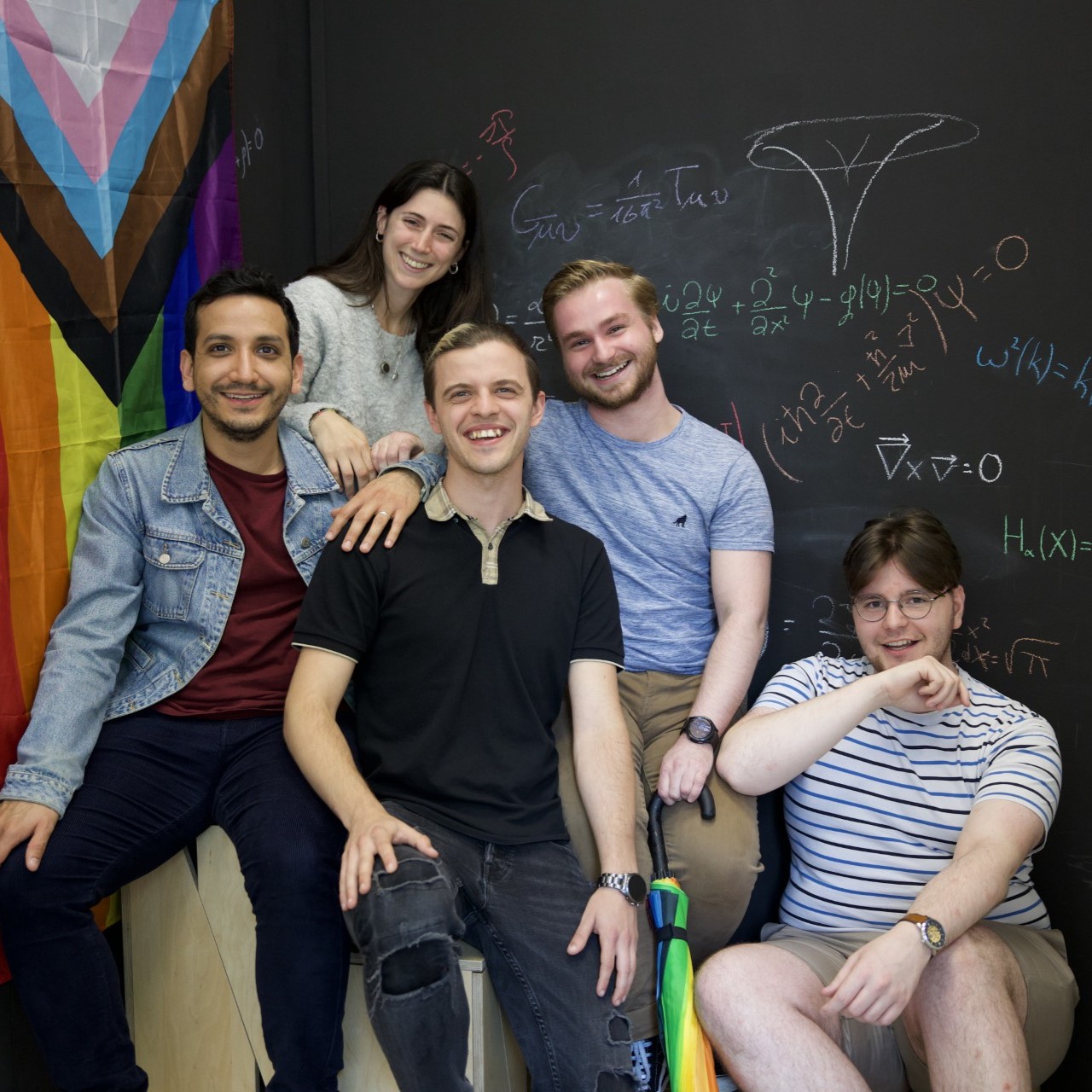Title of project: Exploring the Quantum Universe: PhD Opportunities in Quantum Technologies for Fundamental Physics
Contact Email:
QSimFP@gmail.com
We invite applications for
three fully funded home or international PhD positions in Quantum Technologies for Fundamental Physics at the University of Manchester. The successful candidates will join Prof. Silke Weinfurtner’s research group, the
Gravity Laboratory, within the Photon Science Institute and the Centre for Quantum Science and Engineering. You’ll become part of a dynamic, interdisciplinary team working at the intersection of
quantum fluids, quantum technology, and quantum field theory.
Manchester has made significant new investments in quantum research, creating one of the most vibrant environments in the UK for quantum science and technology. As part of the Department of Physics and Astronomy, you’ll benefit from world-class facilities, cross-disciplinary collaborations, and training in cutting-edge
experimental methods,
theoretical frameworks, and data-analysis tools.
About the research
The group develops
synthetic quantum systems - laboratory setups that mimic phenomena from high-energy physics and gravity. These
quantum simulators let us study how
quantum fields behave near
black holes and in the
early universe, recreating processes of
particle creation in curved spacetime that are otherwise impossible to observe directly.
We focus on
quantum liquids, especially
superfluid helium-4, where quantum coherence extends across macroscopic scales. In this extraordinary medium, waves and vortices become quantised, giving rise to phenomena that have no classical analogue. Superfluid helium supports a rich spectrum of bulk and surface excitations, and in the form of ultrathin films - only hundreds of nanometres thick - it exhibits “third sound,” a collective oscillation unique to two-dimensional quantum systems. These remarkable properties make superfluid helium an ideal platform for exploring quantum phenomena and for developing new quantum technologies.
The Gravity Laboratory takes a unique threefold approach, combining experimental versatility,
theoretical innovation, and creative collaboration. We operate both classical and quantum fluid laboratories, allowing for rapid prototyping in classical systems and exploration of quantum phenomena in superfluid environments. In parallel, we integrate theory and experiment, working with leading theorists to develop new frameworks and high-level modelling for synthetic quantum systems. We also collaborate with established artists, co-creating artworks and scientific projects that expand how we think about and conduct research.
If you’re fascinated by
modern physics, from
quantum field theory,
particle physics, and
general relativity to the emerging areas of
quantum technologies, or enjoy more hands-on topics like
fluids,
superfluidity, and
precision optics, you’ll find this research especially rewarding.
PhD opportunities and training
Depending on your background and interests, projects can emphasize
experiment, theory, or a mix of both - but all involve a strong
hands-on component. We are looking for students who are
curious, creative, and eager to learn across traditional boundaries. Whether you enjoy
building instruments, developing theoretical models, or connecting theory to experiment, you’ll find an environment that encourages exploration and initiative.
As a PhD student in the Gravity Laboratory, you will develop an exceptionally broad experience in
cryogenics, vacuum and gas-handling systems, low-noise electronics, and
optical instrumentation, as well as in precision measurement and high-resolution imaging techniques. Alongside this experimental training, you’ll learn to apply and develop
quantum field theory methods and
information-theoretic tools to interpret experimental results and design new synthetic quantum systems. These transferable skills are highly valued across research, technology, and data-driven industries.
Your PhD project will be shaped around your interests and can evolve as you grow scientifically. Several
concrete projects are available and will be matched to each student’s background and interests, with all researchers working closely within the collaborative Gravity Laboratory team.
Supervisory team: Prof. Silke Weinfurtner (Primary Supervisor), Gravity Laboratory, Photon Science Institute & Centre for Quantum Science and Engineering, University of Manchester.
Indicative start date: 1 October 2026 (earliest).

